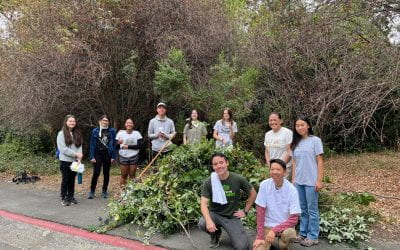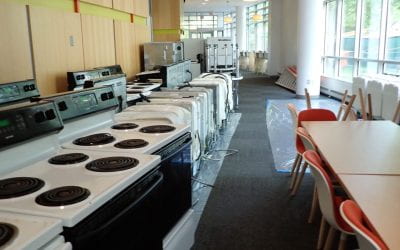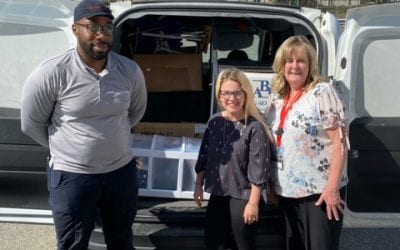Campus Sustainability
Accomplishments
%
reduction in GHG emissions per sf since 2005
%
reduction in energy use per sf since 2005
%
waste was diverted in 2021
%
buildings with reflective roofs
%
reduction in water use since 2005
What’s new
Sustainability news & updates
2023 Climate Justice Progress Report
GET INVOLVED
Subscribe to The Hub's newsletter
Northeastern Reveals a Draft of the Climate Justice Action Plan
Northeastern Reveals a Draft of the Climate Justice Action PlanAt a renowned playhouse and community gathering space on Huntington Avenue, a powerful dinner conversation brought together Boston residents and Northeastern community members this past March. The event...
Leona Creek, Where Nature and Community Thrive
Leona Creek, Where Nature and Community Thrive.At the core of Northeastern’s green and scenic Oakland campus runs a creek that is flourishing in anticipation of the upcoming spring. Known by students and faculty as Leona Creek, this beautiful, riparian body of water...
A Second Life for Gently Used Appliances
A Second Life for Gently Used AppliancesBy Julia Laquerre with the Climate Justice and Sustainability Hub When students entered their freshly renovated West Village G residence hall, they were welcomed by brand new state-of-the-art appliances and freshly...
The Great Exchange: Empowering communities through office supply donation
The Great Exchange:Empowering communities through office supply donation Left to right - Prentice Cox, Amanda Lansing, Sue HigginsBy Julia LaquerreFebruary 16, 2024 2 2 Relocating to a new space often leaves large institutions grappling with excess materials,...
Sustainability around campus
Climate Justice & Sustainability hub
ENERGY MANAGEMENT
Materials & Recycling
Climate Justice Action
Alternative Transportation
Climate Resilience
Greenhouse gas reduction
Sustainability in Capital Projects
Get Involved
Sustainable Resources
Sustainability at northeastern
Sustainable work requests
Help the university become a greener campus by using the Facilities Online Work Request for green actions.
Sustainable actions include:
- Trash pickup
- Replace lightbulbs
- Request or replace recycling bins
- Schedule battery pick up
- Request cardboard hampers
- Adjusting room temperatures





